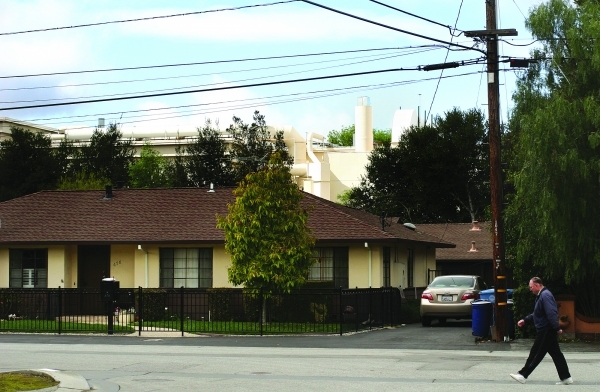Palo Alto's decision in October to phase out the plating-shop operations of Communications & Power Industries (CPI) came after years of neighborhood complaints, numerous commissioned studies and opposition from the company, whose Hansen Way headquarters are located next to a residential area of Barron Park.
The October decision also marked the beginning of a broader effort in Palo Alto to change local zoning laws in a way that would give residential neighborhood more protection from industrial operations like CPI's, which experienced three accidents shortly after it integrated its San Carlos operation into its Palo Alto plating shop in 2005. The company inadvertently released nitric acid into the air in 2005 and experienced two chemical spills (involving hydrochloric acid and wastewater) in 2008.
The zone changes, which the council will consider next year, make it clear what types of industrial uses should be allowed near residential areas. As part of the effort, the Palo Alto Fire Department has been putting together a list of addresses with "toxic and highly toxic materials," according to a new report from the city's Department of Planning and Community Environment. This list will be used to consider a "tied approach" in developing a zoning ordinance.
The list is now being reviewed by the city's consultant, AECOM, a firm that is also charged with reviewing the latest study by CPI about the risks of its plating-shop operations. The city's Planning and Transportation Commission is scheduled to review the list and the potential zone changes in the first three months of 2015, according to city planners. The changes would then go to the City Council for approval.
The revisions could have repercussions well beyond CPI and other industrial companies around Stanford Research Park. The new ordinance would make it possible for the city to determine what additional information should be required to support amortization of operations using hazardous materials.
The council specifically requested in October that the city provide a list of plating shops, "prohibit plating shop uses within a specific distance of residential uses and residential zoning districts, and incorporate an amortization schedule based on updated information on the value of affected investments."
The council voted 8-0 at the October meeting (with Larry Klein absent) to phase out CPI, with Councilman Pat Burt adding language to consider broader changes, including operations such as circuit-board manufacturing and metal etching. Council members agreed that research-and-development facilities that use hazardous materials should no longer be allowed near residents.
"It's just not how we plan our communities," Mayor Nancy Shepherd said at the meeting.
Related content:



Comments